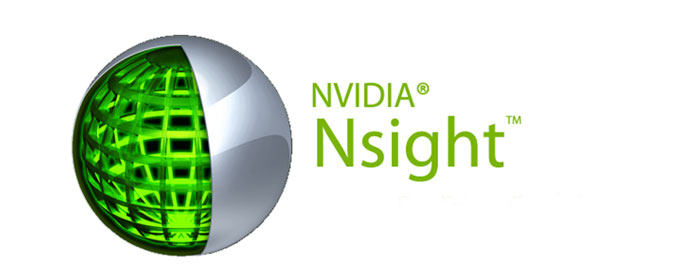Last week I published a resource round-up for OpenGL HLSL shader programming and one of the tools I mentioned was nVidia NSight. One of the major downsides
Visual Studio 2013 support isn’t the only new feature, the new release adds:
New NVIDIA® Nsight™ Visual Studio Edition 4.0 Features:
- Support for the new Maxwell architecture (for example, found in the GeForce GTX 750 Ti and 750).
- Added support for new GPUs, such as the GeForce GT 720M, GeForce GT 730M, GeForce GT 735M, and GeForce 740M.
- Microsoft Visual Studio 2013 is now supported.
- Visual Studio macros are now supported, so values such as
$(TargetPath),$(ProjectDir), and$(LocalDebuggerCommandArguments)are able to be added on the NVIDIA Nsight properties page.
Graphics Debugging and Profiling
- The Nsight Frame Debugger, when running DirectX™ applications, has been redesigned to use flexible, dockable tool windows.
- Dynamic shader editing is now available for GLSL shaders.
- Debugging of release compiled HLSL shaders at the byte code level.
- Pixel history supported for release compiled shaders.
- Frame Profiler results can be exported to an Excel/CSV file.
- Support for FP16 vertices in the Geometry viewer.
- Visual Studio can now visualize the Render Target/Back Buffer/Frame Buffer.
Compute Debugging and Profiling
- Support for the CUDA 6.0 Toolkit.
- Microsoft Visual Studio 2013 is now supported.Note: In order to build CUDA applications, your project settings will need to be set up for the Visual Studio 2012 or prior toolset.
- Several bug fixes.
If you’ve never heard of NSight, in their own words it is:
NVIDIA® Nsight™ Development Platform, Visual Studio Edition brings GPU Computing into Microsoft Visual Studio. Build, Debug, Profile and Trace heterogeneous compute and graphics applications using CUDA C/C++, OpenCL, DirectCompute, Direct3D, and OpenGL.
It’s is a free download and can be downloaded here. Be sure you are running a very current display driver and obviously nVidia hardware.
